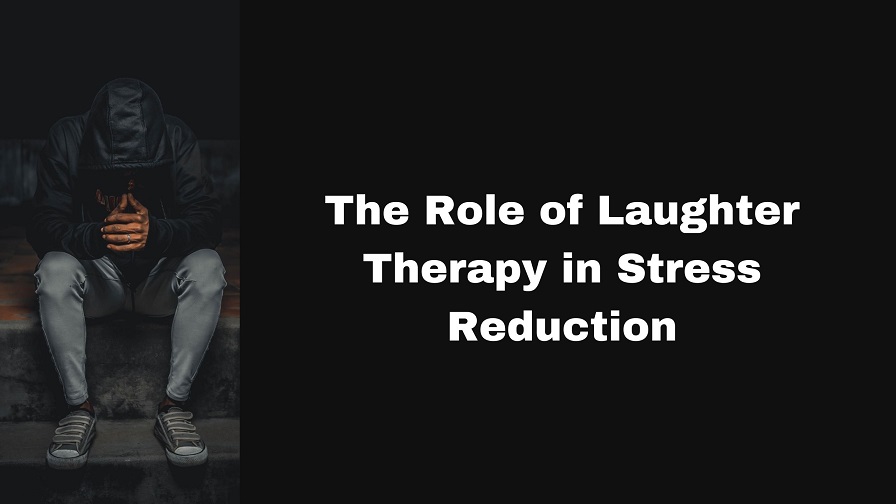The Role of Laughter Therapy in Stress Reduction
In the fast-paced world we live in, stress has become an inescapable reality for many individuals. The constant demands of work, personal life, and societal pressures can take a toll on our mental and physical well-being. However, amid the chaos, a simple yet powerful remedy exists – laughter therapy.
This unconventional approach to stress reduction has gained significant traction in recent years, and for good reason. Laughter therapy harnesses the healing power of laughter to alleviate stress, boost mood, and promote overall well-being.
The Science Behind Laughter Therapy
Laughter is often referred to as the best medicine, and this adage holds true when it comes to stress reduction. When we laugh, our bodies release a cocktail of feel-good hormones, including endorphins, dopamine, and serotonin. These hormones act as natural mood elevators, reducing stress and promoting a sense of relaxation and contentment.
Additionally, laughter has been shown to lower levels of cortisol, the hormone responsible for the body’s stress response. Chronic elevated cortisol levels can lead to a host of health problems, including weakened immune function, weight gain, and increased risk of heart disease and depression. By reducing cortisol levels, laughter therapy can help mitigate the negative effects of stress on the body.
The Physical Benefits of Laughter Therapy
Laughter therapy not only targets stress on a psychological level but also offers physical benefits. During a hearty laugh, our muscles contract and release, providing a form of low-impact exercise. This muscle engagement can improve respiratory function, boost circulation, and even burn a few calories. Additionally, laughter has been shown to increase the production of antibodies, enhancing the body’s ability to fight off infections and illnesses.
Incorporating Laughter Therapy into Daily Life
While the concept of laughter therapy may seem unconventional, it can be easily incorporated into our daily routines. Laughter yoga, a practice that combines yogic breathing exercises with laughter exercises, has gained popularity as a stress-reduction technique. These sessions typically involve laughter exercises, playful eye contact, and childlike behaviors, all aimed at triggering genuine laughter.
For those who prefer a more solitary approach, simply watching comedies, listening to humorous podcasts, or engaging in activities that bring joy and laughter can be beneficial. Surrounding oneself with positive, humorous individuals can also promote a lighter and more stress-free environment.
Laughter Therapy in Healthcare Settings
The benefits of laughter therapy have not gone unnoticed in the healthcare industry. Many hospitals and healthcare facilities have embraced laughter therapy as a complementary treatment for patients dealing with various conditions, including chronic pain, cancer, and mental health issues.
Laughter therapy sessions are often led by trained professionals, known as laughter therapists or humor therapists. These individuals facilitate group sessions, encouraging participants to engage in laughter exercises, playful activities, and humorous storytelling. The goal is to create an environment where genuine laughter can flourish, providing respite from the stress and challenges associated with illness or recovery.
Workplace Stress and Laughter Therapy
Stress is not limited to personal life; it can also permeate professional environments. Workplace stress can lead to decreased productivity, increased absenteeism, and a general decline in employee well-being. In response, many companies have begun implementing laughter therapy programs as part of their employee wellness initiatives.
Laughter therapy workshops or sessions can help employees relieve stress, improve communication and teamwork, and foster a more positive and productive work environment. By encouraging laughter and fostering a lighter atmosphere, employers can improve employee morale and overall job satisfaction.
Combining Laughter Therapy with Other Stress-Reduction Techniques
While laughter therapy can be an effective stress-reduction technique on its own, it can also be combined with other stress-management strategies for enhanced benefits. Practicing mindfulness, engaging in regular exercise, and maintaining a balanced diet can complement the effects of laughter therapy.
By adopting a holistic approach to stress reduction, individuals can reap the benefits of laughter therapy while also addressing other aspects of their physical and mental well-being. This multifaceted approach can lead to a more comprehensive and sustainable reduction in stress levels.
Embracing the Power of Laughter
In a world filled with constant demands and pressures, it is easy to overlook the importance of laughter and joy. However, laughter therapy serves as a powerful reminder of the healing and stress-reducing properties of this simple yet profound human experience.
By embracing laughter therapy, whether through organized sessions or by consciously seeking out opportunities for laughter in our daily lives, we can cultivate a more positive mindset, reduce stress levels, and enhance our overall well-being.
While the concept of laughter therapy may seem unconventional, its benefits are supported by science and personal testimonies. By harnessing the power of laughter, we can transform stress into moments of joy, creating a more balanced and fulfilling life experience.

